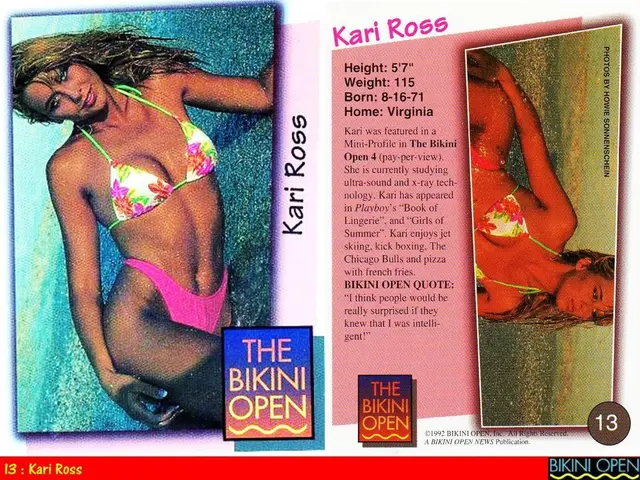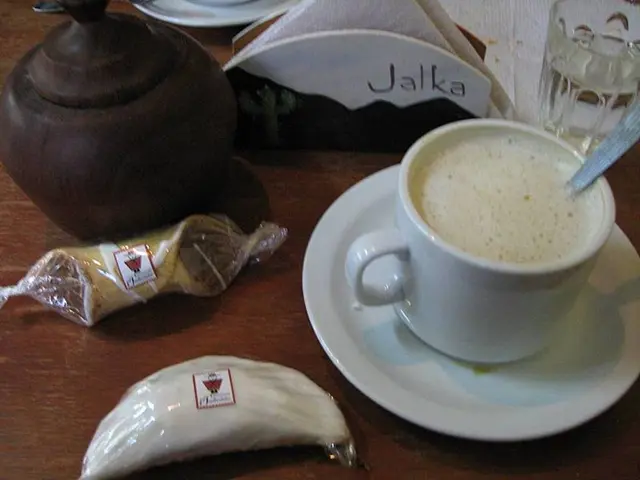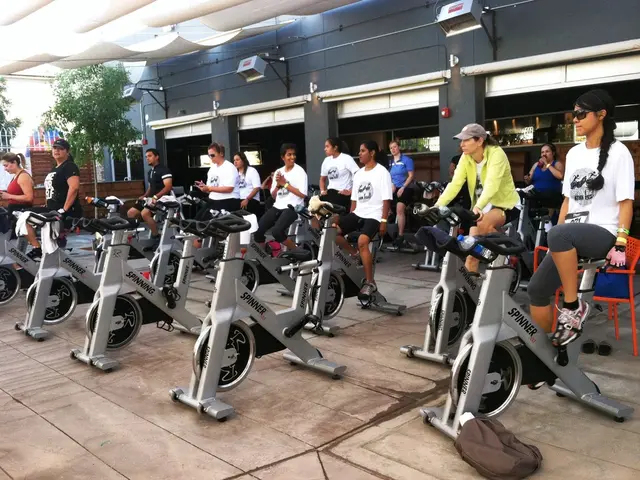Breaking the Silence: Menopause - A Less Taboo Topic Among Women
Struggles in Discussing Menopause: Women Find It Difficult to Open Up About It - Discussion on Menopause: Women often struggle with discussing it openly
Sybille Müller, a 47-year-old with a breezy, laid-back demeanor, fans herself, complaining about the sweltering heat in her doctor's office. "This place needs some air conditioning, doesn't it?" she jokes as she fans herself, her face flushed. Müller - wearing her signature shoulder-length blonde hair, black blazer, and subtle gold jewelry - looks every bit the picture of health and vitality. Yet, she's plagued by hot flashes for years. Thanks to hormone patches, she's found some relief.
With millions of women in Germany grappling with menopause symptoms, it's a cultural phenomenon that, surprisingly, still carries a whiff of taboo. Is the societal tide turning, or is menopause still a conversation women would rather avoid?
"I often hear from women that they find it difficult to talk about it," confesses Mandy Mangler, a chief physician at two Vivantes Auguste-Viktoria clinics in Berlin. "It's still very taboo because it's also about aging, about doors closing." Mangler notes a subtle shift, however, as the topic begins to surface in mainstream media.
At 45, most women undergo menopause, a transformative stage marked by the gradual cessation of hormone production by the ovaries. Symptoms can run the gamut, including hot flashes, sleep disturbances, depressive moods, vaginal dryness, concentration difficulties, and more. According to Thomas Strowitzki from the University Hospital Heidelberg, around 30 percent experience mild symptoms, and 50 percent suffer more severe issues.
Müller's mastery of menopause management highlights an important aspect of the conversation: it's not a one-size-fits-all journey. Her missteps with her original gynecologist underscored an essential component of the support system women need. She ultimately turned to hormone treatments after consulting with Strowitzki, trying hormone gel and eventually settling on patches.
As society evolves, the conversation around menopause seems to be moving towards greater acceptance and openness. Cultural shifts, media portrayals, and growing awareness all contribute to the demystification of this life stage. Yet, the stigma persists in some corners, rooted in societal perceptions around aging and the traditional female role.
"The cessation of menstrual bleeding is the first point of no return in life and a first sign of our 'finiteness,'" observes Katrin Schaudig, president of the German Menopause Society. "Our fertility is now over." This sense of finality can foster feelings of vulnerability and hesitance to discuss menopause openly.
As women become more confident in their roles and assert their rights, they're also reclaiming their health narratives. "Women are becoming more self-confident in this society," says Schaudig. "If you will, it's perhaps part of a feminist consciousness."
The groundswell of women in menopause currently stands at an impressive nine million[1]. Many businesses are stepping up to the plate, offering counseling and resources to support women navigating this phase of their lives[3]. Strowitzki, Medical Director of the Heidelberg Clinic for Gynecological Endocrinology and Fertility Disorders, notes an increase in companies taking notice of this issue, with working groups focused on creating supportive workspaces for affected women.
Despite the shifts in societal attitudes, it's essential to remember that the path to menopause varies among women. Some may find comfort in alternative therapies, such as exercise, healthy diets, and plant-based remedies like grapefruit seed extract, red clover, or soy[6]. Yet, others may require hormone replacement therapy to manage symptoms effectively. The risks and benefits must always be weighed, as hormone replacement therapy can increase the risk of breast cancer if prolonged beyond five years[7].
The transformation of menopause from a whispered secret to a shared experience brings both challenges and opportunities. It encourages open discussions, fosters awareness, and promotes understanding. Ultimately, it's about recognizing the beauty and resilience that characterizes women in this vital, transformative stage.
[1] https://www.awo-women.de/aktuelles/mehrheit-frauen-ist-unter-35-jahren-leichter-als-ehem/[2] https://www.healthline.com/health/menopause/celebrities-open-up-menopause#feminist-voices[3] https://www.express.co.uk/life-style/health/1074248/menopause-symptoms-job-workplace-discrimination[4] https://www.ncbi.nlm.nih.gov/pmc/articles/PMC7239105/[5] https://www.verywellhealth.com/event-menopause-2021466[6] https://www.menopause-magazine.co.uk/news-and-views/news/menopause-management-without-hormones[7] https://www.aicr.org/cancer-prevention/reduce-your-risk/estrogens-and-breast-cancer-risk.html
- In the realm of health-and-wellness, the German Menopause Society and other communities are advocating for an inclusive policy that addresses the unique needs and experiences of women going through menopause, fostering a supportive environment for vocational training and personal development during this transitional period.
- As part of a holistic approach to menopause management, many advocates suggest integrating science-backed alternative therapies, such as exercise, diet modifications, and natural herbal remedies like red clover and soy, into vocational training programs on health-and-wellness and women's health, including issues specific to women's health during menopause like menopause and women's mental health.








